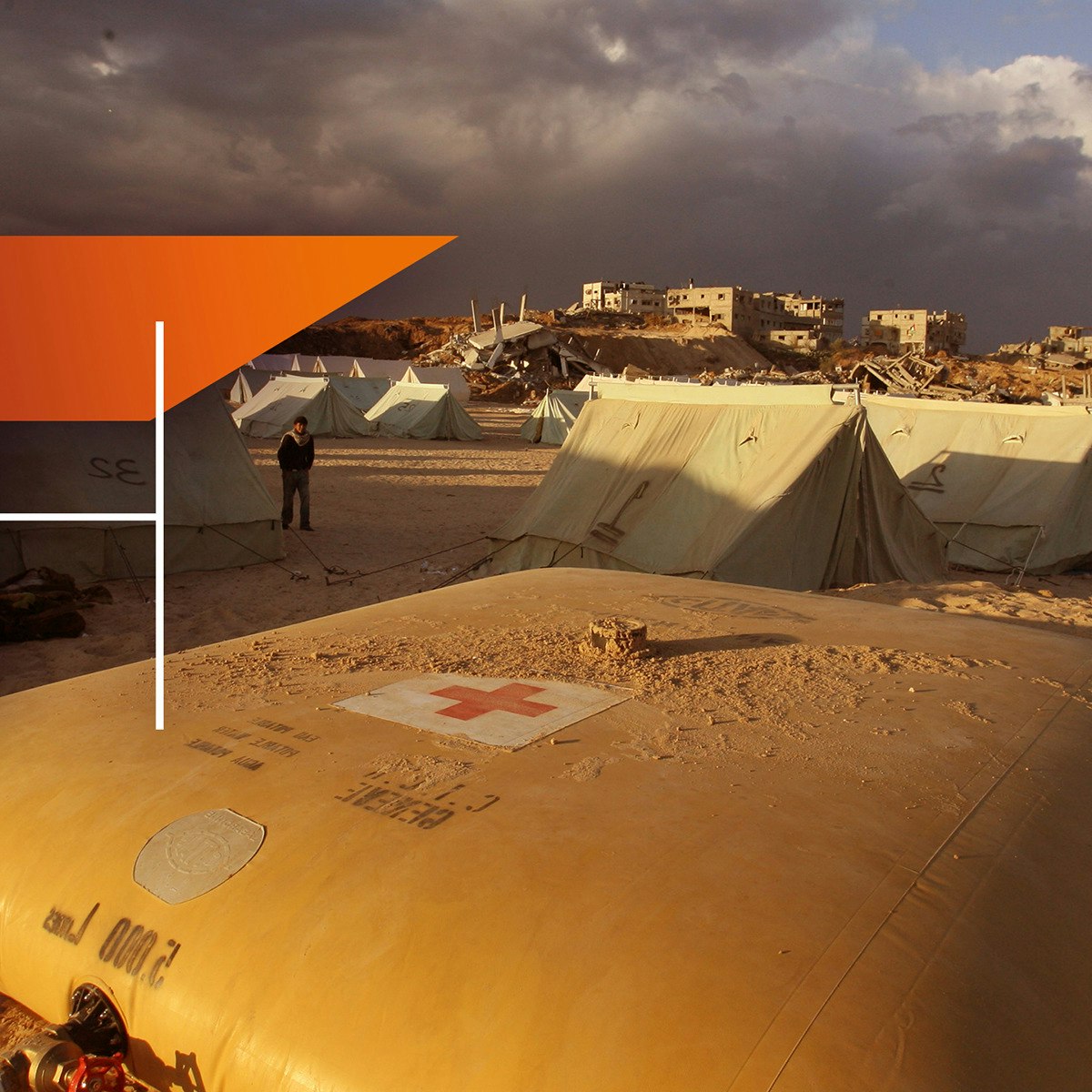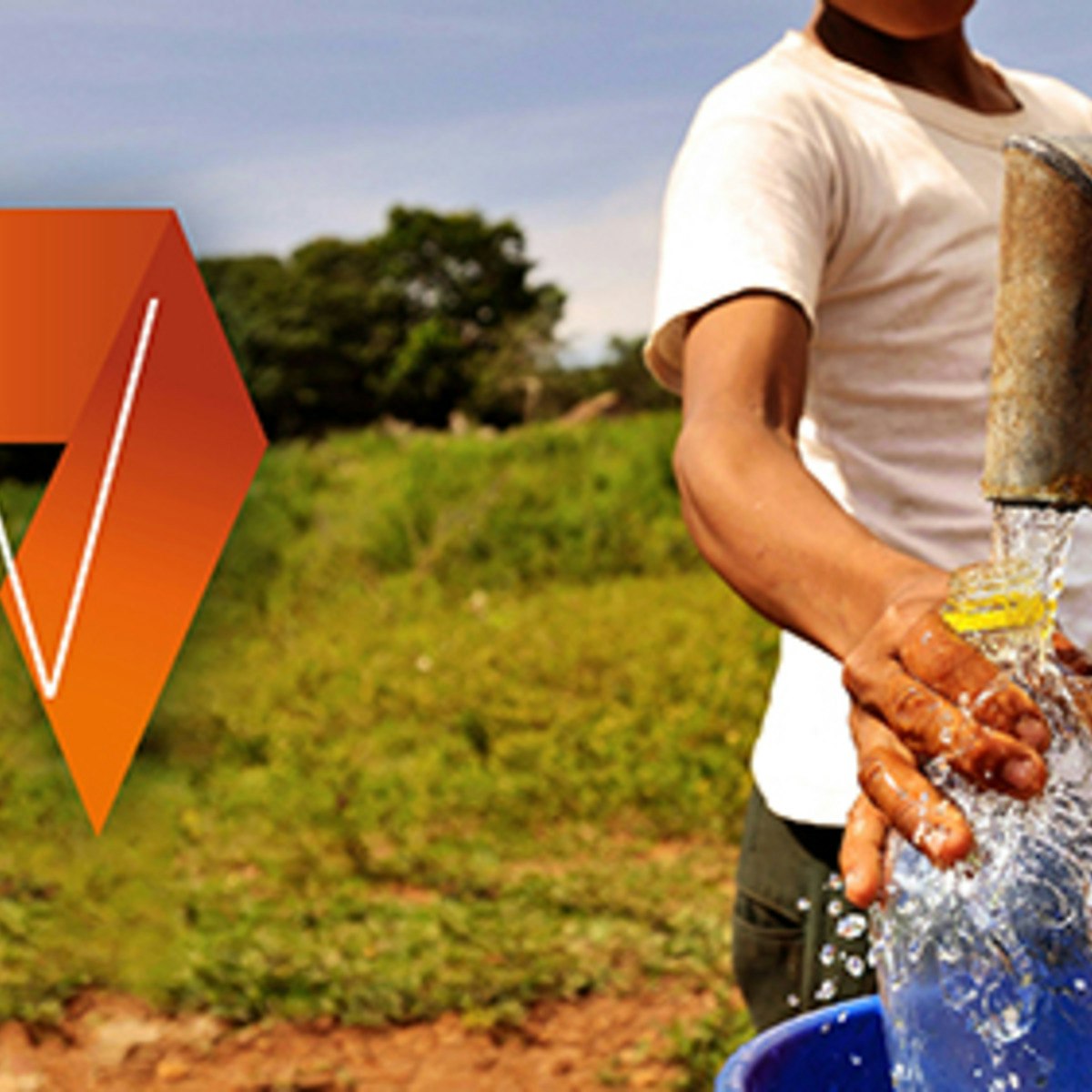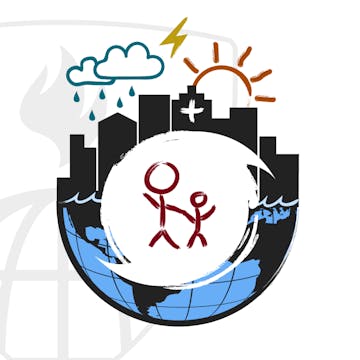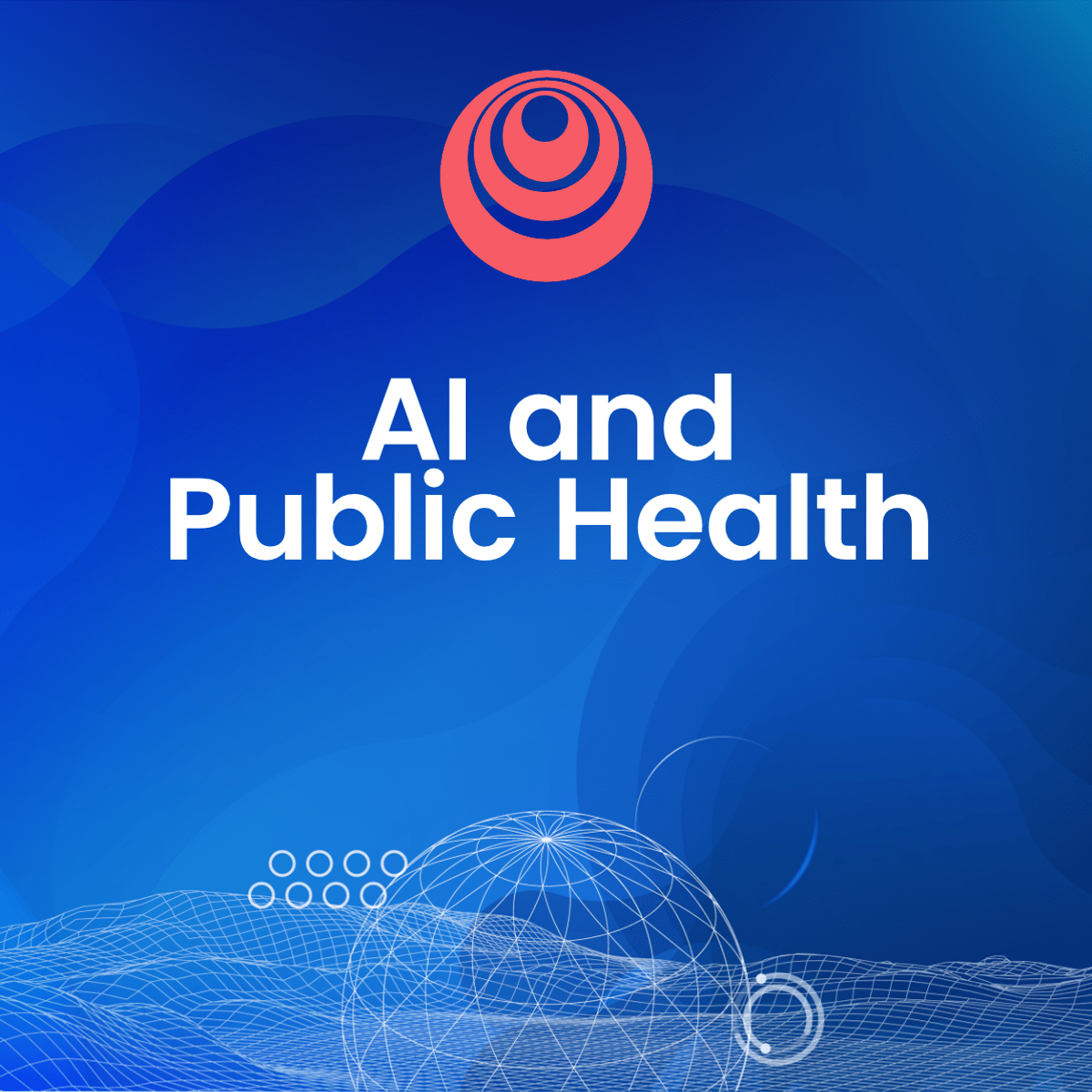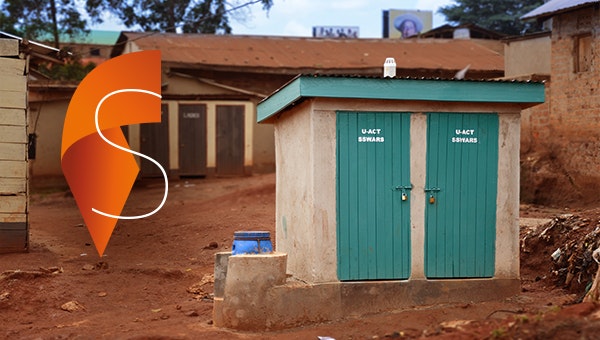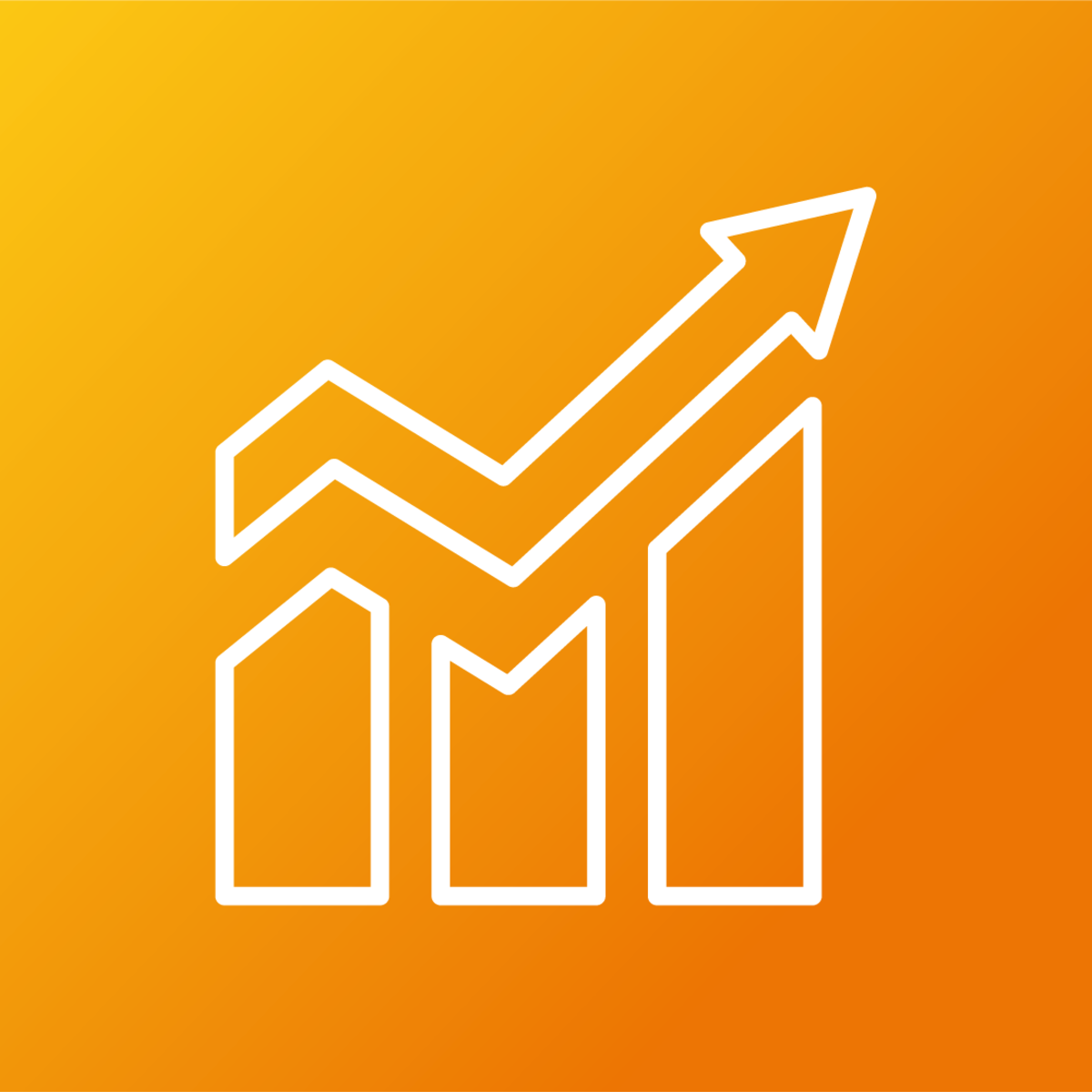Public Health Engineer
Public Health Engineer: Building a Healthier World
Public Health Engineering sits at the critical intersection of engineering principles and public health goals. Professionals in this field design, build, and manage the physical infrastructure and systems that protect community health. Their work focuses on preventing disease and promoting well-being through the engineered environment, ensuring access to essentials like clean water and safe sanitation.
Working as a Public Health Engineer can be deeply rewarding. It involves tackling complex challenges with tangible impacts, such as designing water treatment plants for growing cities or developing sanitation solutions in resource-limited settings. The role often involves collaborating with diverse teams, including health officials, community leaders, and environmental scientists, to create healthier living conditions for populations worldwide.
What Does a Public Health Engineer Do?
The responsibilities of a Public Health Engineer are diverse, focusing on safeguarding community health through environmental interventions. They apply engineering knowledge to identify, assess, and mitigate environmental hazards that pose risks to human health. This involves a blend of technical expertise, problem-solving skills, and an understanding of public health principles.
Designing Essential Infrastructure
A primary function is the planning and design of infrastructure crucial for public health. This includes systems for drinking water treatment and distribution, ensuring water is safe from source to tap. They also design wastewater collection and treatment systems to prevent contamination and the spread of waterborne diseases.
Solid waste management systems, from collection to disposal or recycling, also fall under their purview. Proper management minimizes pests, odors, and the leaching of harmful substances into the environment. Engineers consider population density, geography, and available resources when designing these vital systems.
Their designs must be robust, sustainable, and often adaptable to future changes, such as population growth or evolving environmental regulations. The goal is always to create systems that effectively protect public health while being economically viable and environmentally sound.
These courses provide foundational knowledge in designing systems vital for public health, particularly in challenging contexts.
Understanding the standards and practicalities of water and sanitation systems is key. These books offer detailed guidance.
Assessing Environmental Risks
Public Health Engineers play a crucial role in identifying and evaluating environmental factors that could harm human health. This involves conducting risk assessments to understand the potential impact of pollutants in air, water, and soil. They analyze exposure pathways and estimate the likelihood and severity of health effects.
Techniques used include environmental sampling, laboratory analysis, and modeling potential contaminant spread. For example, they might assess the risk associated with industrial emissions near residential areas or evaluate the safety of groundwater sources suspected of contamination.
The findings from these assessments inform public health policies, regulatory standards, and decisions about remediation or control measures. This work requires a strong understanding of environmental science, toxicology, and statistical methods.
Planning for Emergencies
Preparing for and responding to public health emergencies is another key aspect of the role. Public Health Engineers help develop plans to ensure continuity of essential services like water supply and sanitation during disasters, such as floods, earthquakes, or disease outbreaks.
This involves contingency planning, designing temporary or rapidly deployable systems, and coordinating with emergency management agencies and humanitarian organizations. During an emergency, they may oversee the setup of temporary water purification units or emergency sanitation facilities.
Their expertise is vital in preventing secondary health crises that can arise from disrupted infrastructure, such as outbreaks of cholera or typhoid. Post-crisis, they contribute to assessing damage and planning the rehabilitation of essential systems.
This course focuses specifically on the engineering aspects within humanitarian crises.
These books delve into emergency preparedness and response from a public health perspective.
Ensuring Regulatory Compliance
Public Health Engineers must be well-versed in environmental laws and public health regulations. They ensure that infrastructure projects and environmental management practices comply with local, national, and international standards. This includes standards for drinking water quality, wastewater discharge, air emissions, and waste disposal.
They may be involved in the permitting process for new facilities, conducting environmental impact assessments, or advising organizations on compliance strategies. Staying updated on evolving regulations is essential.
This requires meticulous attention to detail and the ability to interpret complex legal and technical documents. Their work helps protect both the environment and public health by ensuring adherence to established safety guidelines.
Essential Skills and Knowledge
Success as a Public Health Engineer demands a specific set of technical competencies combined with strong analytical and communication skills. Mastery of these areas allows engineers to effectively design solutions, assess risks, and collaborate with diverse stakeholders to protect community health.
Technical Proficiency
A strong foundation in engineering principles, particularly civil and environmental engineering, is fundamental. This includes understanding fluid mechanics, hydraulics, chemistry, and microbiology as they relate to water and wastewater treatment processes.
Proficiency in specific software is often necessary. Hydraulic modeling software (like EPANET or SWMM) is used to design and analyze water distribution and sewer systems. Geographic Information Systems (GIS) software is crucial for mapping environmental data, tracking disease outbreaks, and planning infrastructure layouts.
Familiarity with environmental sampling techniques and laboratory procedures for water and air quality testing is also important. These technical skills form the bedrock of the profession.
These books offer comprehensive insights into water resources engineering and wastewater microbiology.
Data Analysis and Interpretation
Public Health Engineers frequently work with data to understand health trends, assess risks, and evaluate the effectiveness of interventions. Skills in data analysis are therefore essential.
This includes understanding basic epidemiological concepts to interpret health data and identify potential links between environmental factors and disease patterns. Statistical analysis skills are needed to analyze environmental monitoring data, assess compliance with standards, and model potential health impacts.
Being able to effectively visualize and communicate data findings to both technical and non-technical audiences is crucial for influencing policy and public understanding. Comfort with statistical software packages can be a significant advantage.
These courses cover statistical analysis specifically within the public health context, providing valuable skills for interpreting health data.
System Design and Management
Core competencies include the ability to design and manage systems for water supply, sanitation, and waste management. This involves applying engineering principles to create solutions that are effective, sustainable, and appropriate for the specific context, whether urban or rural, high-resource or low-resource.
Knowledge of various treatment technologies and infrastructure components is necessary. This includes understanding the design criteria, operational requirements, and maintenance needs for systems like filtration plants, sewage networks, and landfills.
Project management skills are also important for overseeing the implementation of infrastructure projects, managing budgets, and coordinating teams. An understanding of sustainability principles helps ensure long-term viability.
Adapting to Climate Change
As climate change poses increasing threats to public health infrastructure, understanding climate resilience is becoming a vital competency. Public Health Engineers need to develop strategies to make water, sanitation, and health systems more resilient to climate impacts like droughts, floods, and extreme heat.
This involves incorporating climate projections into infrastructure design, planning for water scarcity, and developing flood protection measures. It also includes understanding the health impacts of climate change, such as the spread of vector-borne diseases, and designing adaptations.
Skills in risk assessment and adaptation planning are key. Collaboration with climate scientists, policymakers, and community groups is essential for developing effective resilience strategies.
This course offers insights into protecting public health amidst climate challenges, especially at the local level.
Educational Pathways to Becoming a Public Health Engineer
Embarking on a career as a Public Health Engineer typically requires a specific educational foundation, often blending engineering with public health principles. Understanding the pathways, from undergraduate studies to advanced degrees and certifications, is crucial for aspiring professionals.
Undergraduate Foundations
Most Public Health Engineers begin with a bachelor's degree in an engineering field. Civil Engineering or Environmental Engineering programs are the most common starting points, as their curricula often cover relevant topics like water resources, hydraulics, environmental chemistry, and infrastructure design.
Some universities may offer specialized tracks or minors in public health or environmental health within their engineering programs. Coursework typically includes mathematics, physics, chemistry, and core engineering subjects, along with specialized courses relevant to environmental systems.
Gaining practical experience through internships or co-op programs during undergraduate studies is highly beneficial. This provides real-world exposure and can help clarify career interests within the broad field of engineering.
Advanced Specialization
While a bachelor's degree can open doors to entry-level positions, many Public Health Engineers pursue advanced degrees to specialize further. A Master of Science (MS) in Environmental Engineering or Civil Engineering with a focus on environmental or water resources is common.
Alternatively, some pursue a Master of Public Health (MPH) degree, often after completing an undergraduate engineering degree. MPH programs with concentrations in environmental health sciences provide a strong foundation in epidemiology, biostatistics, health policy, and risk assessment from a public health perspective.
Some universities offer dual degree programs (e.g., MS Engineering/MPH) or specialized Master's programs specifically in Public Health Engineering or Environmental Health Engineering, directly combining both disciplines.
Online courses can be valuable supplements during or after formal education. They allow learners to deepen knowledge in specific areas like epidemiology, GIS, or specific water treatment technologies. OpenCourser's Health & Medicine and Engineering sections offer a wide array of relevant courses.
These courses introduce core public health principles and epidemiology, often covered in MPH programs.
Doctoral Studies and Research
For those interested in research, academia, or high-level policy roles, a Doctor of Philosophy (PhD) may be pursued. PhD programs typically focus on advancing knowledge in specific areas of public health engineering, such as developing novel water treatment technologies, modeling complex environmental health risks, or studying the long-term health impacts of infrastructure interventions.
Research frontiers might include areas like climate change adaptation for water systems, the use of AI in environmental monitoring, sustainable sanitation solutions for developing regions, or understanding the health effects of emerging contaminants.
A PhD requires significant independent research culminating in a dissertation. Graduates often work in universities, government research agencies, or specialized consulting firms.
Licensure and Certification
In many jurisdictions, particularly in the United States, practicing engineers who offer services directly to the public must be licensed as Professional Engineers (PE). Requirements typically include graduating from an ABET-accredited engineering program, passing the Fundamentals of Engineering (FE) exam, gaining several years of relevant work experience, and passing the Principles and Practice of Engineering (PE) exam.
While a general Civil or Environmental PE license is common, some specialized certifications exist. The American Academy of Environmental Engineers and Scientists (AAEES) offers board certification in Environmental Engineering, which can signify advanced expertise.
Accreditation of academic programs (like ABET for engineering and CEPH for public health) is an important quality indicator. Certifications, while often voluntary, can enhance career prospects and demonstrate specialized competence.
Navigating Your Career in Public Health Engineering
A career in Public Health Engineering offers diverse opportunities across various sectors. Understanding the typical career trajectory, potential employers, and salary expectations can help individuals plan their professional journey in this impactful field.
Starting Your Journey
Entry-level positions often involve supporting senior engineers on projects. Tasks might include data collection, basic design calculations, drafting reports, and assisting with fieldwork like site inspections or environmental sampling. Common job titles include Junior Engineer, Staff Engineer, or Environmental Analyst.
These initial years are crucial for developing practical skills, gaining exposure to different types of projects, and working towards professional licensure (like the PE license). Promotion timelines vary, but engineers often advance to project engineer roles within 3-7 years, taking on more responsibility for design and project management.
Building a strong network through professional organizations and mentorship is valuable during this stage. Continuous learning, perhaps through online courses found via OpenCourser, helps stay current with evolving technologies and regulations.
Public Sector vs. Private Sector
Public Health Engineers work in both the public and private sectors. Public sector roles are often found in government agencies at the local, state, or federal level (e.g., health departments, environmental protection agencies, water utilities). These roles typically focus on regulation, policy development, community health assessment, and overseeing public infrastructure projects.
Private sector opportunities are commonly found in engineering consulting firms. Consultants work on projects for various clients, including municipalities, industries, and developers. This can involve designing infrastructure, conducting environmental assessments, ensuring regulatory compliance, and providing technical expertise.
Non-governmental organizations (NGOs) and international health organizations (like WHO or UNICEF) also employ Public Health Engineers, particularly for work in developing countries or humanitarian settings, focusing on water, sanitation, and hygiene (WASH) programs.
Leadership and Advancement
With experience and often advanced education or certifications, Public Health Engineers can move into leadership positions. This might involve managing engineering teams, overseeing large-scale projects or programs, directing departments within government agencies, or becoming partners in consulting firms.
Opportunities also exist in international health organizations, leading global initiatives related to water safety, sanitation access, or environmental health policy. Academia offers another path, involving research, teaching, and mentoring the next generation of engineers.
Some engineers may pivot into related fields like urban planning, environmental law, or public policy, leveraging their technical background and understanding of health issues. Continuous professional development is key to accessing these advanced roles.
This course delves into humanitarian contexts, relevant for those interested in international health organizations.
Salary Expectations
Salaries for Public Health Engineers vary based on factors like education level, years of experience, geographic location, sector (public vs. private), and specific responsibilities. Generally, compensation aligns with other engineering disciplines requiring similar levels of education and licensure.
Entry-level salaries typically reflect those of junior civil or environmental engineers. According to the U.S. Bureau of Labor Statistics (BLS), the median annual wage for environmental engineers was $98,160 in May 2023, though this figure encompasses a broader range of roles. Salaries tend to increase significantly with experience, licensure (PE), and assumption of managerial duties.
While public sector salaries might sometimes start lower than private consulting, they often come with strong benefits packages and greater job security. Leadership roles in either sector, as well as specialized consulting, can command substantial incomes.
Global Challenges Addressed by Public Health Engineers
Public Health Engineers are at the forefront of tackling some of the world's most pressing health and environmental challenges. Their work is crucial in adapting to a changing planet and ensuring equitable access to basic services essential for health and well-being.
Infrastructure Under Pressure
Rapid urbanization, particularly in low- and middle-income countries, places immense strain on existing water, sanitation, and waste management infrastructure. Public Health Engineers work to design and upgrade systems that can cope with growing populations and increasing density.
This involves finding cost-effective and sustainable solutions for extending services to underserved urban areas, including informal settlements. Challenges include limited space, financial constraints, and the need for systems that are resilient to the stresses of urban environments.
Addressing the infrastructure deficit requires innovative planning, appropriate technology selection, and community engagement to ensure solutions are accepted and maintained.
These courses discuss challenges and solutions for urban water management and smart cities.
Water Security and Climate Change
Climate change directly impacts water resources through altered precipitation patterns, increased frequency of droughts and floods, and rising sea levels affecting coastal aquifers. Public Health Engineers are critical in developing strategies to ensure water security in the face of these changes.
This includes designing water systems resilient to drought (e.g., water reuse, desalination), implementing flood protection measures for water treatment plants, and protecting water sources from contamination during extreme weather events. They also work on managing water demand and promoting water conservation.
Ensuring safe and sufficient water for all requires integrating climate projections into long-term water resource management and infrastructure planning, a complex task demanding interdisciplinary collaboration.
These books provide context on global water challenges and resource management.
Striving for Health Equity
Disparities in access to safe water, sanitation, and healthy environments persist globally and within countries, often disproportionately affecting marginalized communities. Public Health Engineers play a role in addressing these health equity issues.
This involves advocating for and designing infrastructure projects that prioritize underserved populations. It requires culturally sensitive approaches, community participation in planning, and consideration of affordability to ensure that solutions benefit everyone.
Engineers must analyze how resource allocation decisions impact different groups and work towards equitable distribution of environmental health benefits and burdens. This often involves navigating complex social and political landscapes.
Preventing Emerging Diseases
Environmental factors play a significant role in the emergence and spread of infectious diseases. Public Health Engineers contribute to prevention efforts through vector control (e.g., managing water bodies to reduce mosquito breeding), ensuring safe water and sanitation to prevent waterborne illnesses, and designing healthcare facilities with appropriate infection control measures.
Their work in environmental surveillance, such as monitoring wastewater for pathogens, can provide early warnings of disease outbreaks. As new health threats emerge, often linked to environmental changes or globalization, the role of environmental control strategies becomes increasingly important.
This requires staying abreast of epidemiological trends and collaborating closely with public health officials and researchers to implement effective environmental interventions.
This course covers disease screening from a public health perspective.
Innovations Transforming the Field
Technology is rapidly evolving, presenting new tools and approaches for Public Health Engineers to enhance their work in protecting community health. Embracing these innovations allows for more efficient monitoring, improved system design, and more targeted interventions.
Smarter Environmental Monitoring
Advances in sensor technology and the Internet of Things (IoT) are enabling real-time monitoring of environmental conditions. Smart water quality sensors deployed within distribution systems can provide continuous data on parameters like chlorine residual, turbidity, and pH, allowing for rapid detection of potential contamination events.
Similarly, air quality sensors can provide granular data on pollutants in different parts of a city. This data allows engineers and health officials to respond more quickly to issues, optimize treatment processes, and provide timely public health advisories.
Integrating this data into management systems enables more proactive and data-driven decision-making for environmental health protection.
Geospatial Tools for Health
Geographic Information Systems (GIS) have become indispensable tools for Public Health Engineers. GIS allows for the visualization and analysis of spatial data, which is critical for understanding the distribution of environmental hazards and health outcomes.
Applications include mapping disease clusters to identify potential environmental sources, planning optimal routes for waste collection, siting new infrastructure like wells or treatment plants, and modeling the potential spread of contaminants in water or air.
Combining GIS with epidemiological data helps identify high-risk areas and populations, allowing for more targeted public health interventions and resource allocation.
AI and Predictive Maintenance
Artificial Intelligence (AI) and machine learning are beginning to be applied in public health engineering. AI algorithms can analyze vast amounts of data from sensors and operational systems to predict potential infrastructure failures, such as pipe breaks in water distribution networks.
This predictive maintenance approach allows utilities to address potential problems before they cause service disruptions or contamination events, saving costs and protecting public health. AI can also optimize the operation of treatment plants for energy efficiency and improved performance.
As AI tools become more sophisticated, their potential applications in modeling environmental risks, optimizing system designs, and even predicting disease outbreaks based on environmental data are likely to expand.
This course explores the intersection of AI and public health.
Decentralized and Sustainable Solutions
Innovation isn't limited to high-tech solutions. There is growing interest in decentralized water and sanitation systems, particularly for rural areas or rapidly growing urban peripheries where extending centralized networks is challenging or costly.
These include technologies like household water treatment filters, community-managed small water systems, composting toilets, and decentralized wastewater treatment systems (DEWATS). Public Health Engineers work on developing, evaluating, and implementing these context-appropriate solutions.
The focus is often on sustainability, affordability, and ease of operation and maintenance by local communities. These innovations are crucial for expanding access to essential services in diverse settings worldwide.
These courses focus on planning and designing sanitation systems, often relevant for decentralized contexts.
Ethical Dimensions of Public Health Engineering
The work of Public Health Engineers carries significant ethical responsibilities. Their decisions directly impact the health, safety, and well-being of communities, often involving complex trade-offs and considerations of justice and equity.
Balancing Costs and Safety
Engineers frequently face the challenge of designing systems within budget constraints while ensuring they meet necessary safety and health standards. This can create ethical dilemmas when cost-cutting measures might potentially compromise long-term safety or effectiveness.
Decisions about the level of treatment for water or wastewater, the materials used in construction, or the frequency of maintenance involve balancing economic feasibility with the primary obligation to protect public health. Transparency and adherence to professional codes of ethics are crucial in navigating these decisions.
Prioritizing public safety above other considerations is a fundamental ethical principle for engineers in this field.
Cultural Sensitivity and Community Engagement
Implementing infrastructure projects, especially in diverse or international settings, requires cultural sensitivity and meaningful community engagement. Solutions that work well in one context may not be appropriate or accepted in another due to cultural practices, social norms, or local preferences.
Ethical practice involves genuinely listening to community needs and concerns, respecting local knowledge, and designing solutions collaboratively. Imposing solutions without community buy-in can lead to project failure and undermine trust.
Ensuring that projects are implemented in a way that respects local customs and empowers communities is an important ethical consideration.
These courses cover participatory approaches, vital for ethical community engagement.
Data Privacy and Health Monitoring
The increasing use of sensors and data collection in environmental health monitoring raises ethical questions about data privacy and security. Information about household water usage, exposure to pollutants, or even health status derived from environmental data needs careful handling.
Engineers and public health officials must ensure that data collection practices are transparent, consent is obtained where appropriate, and robust measures are in place to protect individual privacy. The potential benefits of data for public health must be weighed against the risks to privacy.
Developing clear ethical guidelines and policies for the collection, storage, and use of environmental health data is becoming increasingly important.
Environmental Justice Considerations
Environmental justice recognizes that environmental burdens (like pollution sources or lack of access to safe infrastructure) often disproportionately affect low-income communities and communities of color. Public Health Engineers have an ethical responsibility to consider the justice implications of their work.
This involves assessing whether proposed projects might exacerbate existing inequities or whether they can be designed to promote fairer distribution of environmental benefits and risks. It means advocating for resources to be directed towards communities facing the greatest environmental health disparities.
Actively considering environmental justice helps ensure that engineering solutions contribute to a healthier and more equitable society for all residents.
The Role of Public Health Engineers in Disaster Response
In times of crisis, whether natural disasters or conflict situations, the skills of Public Health Engineers are indispensable. They play a critical role in mitigating immediate health risks and laying the groundwork for recovery by restoring or providing essential environmental health services.
Rapid Deployment of Sanitation Systems
Following a disaster, existing sanitation infrastructure is often damaged or overwhelmed, creating high risks for disease transmission. Public Health Engineers are involved in the rapid assessment of needs and the deployment of emergency sanitation solutions.
This can range from constructing temporary latrines that meet basic hygiene standards to setting up more sophisticated emergency faecal sludge management systems. The key is to provide safe and culturally appropriate options quickly to prevent contamination of water sources and living areas.
They work under challenging conditions, often with limited resources, to implement solutions that protect the health of displaced or affected populations.
These courses and books cover WASH standards and engineering in humanitarian contexts.
Ensuring Safe Water in Emergencies
Access to safe drinking water is paramount during emergencies. Water sources can become contaminated, and distribution systems may be damaged. Public Health Engineers assess water quality, identify safe sources, and implement emergency water treatment methods.
This might involve distributing household water treatment options (like filters or chlorine tablets), setting up mobile water treatment units, or repairing damaged wells or pipelines. They also advise on safe water storage practices to prevent recontamination.
Their expertise ensures that affected populations have access to sufficient quantities of water safe enough for drinking, cooking, and personal hygiene, preventing dehydration and waterborne diseases.
Coordination and Collaboration
Effective disaster response requires coordination among many actors. Public Health Engineers work closely with government agencies, local authorities, UN agencies (like UNICEF and UNHCR), international NGOs, and community representatives.
They provide technical expertise within the established coordination mechanisms, such as the WASH Cluster system used in international humanitarian responses. Clear communication and collaboration are essential to avoid duplication of effort, ensure resources are used efficiently, and implement interventions that meet the priority needs of the affected population.
Their role often involves bridging the gap between engineering solutions and public health outcomes, ensuring that technical interventions effectively address health risks.
Transitioning to Recovery
Beyond the immediate response phase, Public Health Engineers contribute to longer-term recovery and reconstruction. They assess the damage to permanent infrastructure and develop plans for repair or rebuilding, often incorporating principles of "building back better" to enhance resilience against future disasters.
This involves designing more robust systems, considering future risks like climate change impacts, and supporting communities in restoring sustainable water and sanitation services. Their work helps transition from emergency measures to durable solutions that support long-term community health and development.
Frequently Asked Questions
Here are answers to some common questions about pursuing a career as a Public Health Engineer.
What's the difference between Public Health Engineering and Environmental Engineering?
While there is significant overlap, the focus differs. Environmental Engineering broadly addresses environmental protection and remediation, tackling issues like air pollution control, hazardous waste management, and ecosystem restoration. Public Health Engineering specifically focuses on the aspects of the environment that directly impact human health, primarily water, sanitation, waste, and shelter, often integrating engineering solutions with public health strategies like disease prevention and health promotion.
Think of Public Health Engineering as a specialized area within or closely related to Environmental Engineering, with a stronger emphasis on direct human health outcomes and interventions. Many professionals work across both areas.
What is a typical entry-level salary?
Entry-level salaries vary by location, sector, and specific qualifications, but generally align with starting salaries for civil or environmental engineers. In the U.S., this might range roughly from $60,000 to $75,000 per year, but this can fluctuate significantly. Consulting roles may offer slightly higher starting pay than public sector positions, though government jobs often provide excellent benefits and stability.
Salaries increase with experience, gaining a Professional Engineer (PE) license, and taking on more complex projects or management responsibilities. Checking resources like the BLS Occupational Employment Statistics or professional society salary surveys can provide more region-specific data.
Remember that roles in non-profits or international development may have different compensation structures.
What technical skills are most in demand?
Currently, proficiency in water and wastewater treatment design remains fundamental. Skills in hydraulic modeling (using software like EPANET, SWMM) and GIS are highly valued for infrastructure planning and analysis. Data analysis skills, including basic statistics and familiarity with relevant software (like R or Python for public health data), are increasingly important.
Knowledge related to climate change adaptation and resilience planning for infrastructure is a growing area of demand. Additionally, expertise in risk assessment methodologies and understanding of current environmental regulations are consistently sought after.
Soft skills like communication, project management, and cross-cultural collaboration are also crucial, especially for roles involving community engagement or international work. Exploring courses on OpenCourser can help build these technical skills.
These courses cover statistical methods often used in public health.
How might automation impact job prospects?
Automation and AI are more likely to change the *nature* of the work rather than eliminate jobs wholesale in the near future. Tasks like routine data analysis, basic modeling, or component selection might become more automated, freeing up engineers to focus on complex problem-solving, strategic planning, stakeholder engagement, and interpreting results.
AI could enhance predictive maintenance, optimize system operations, and improve risk modeling. Engineers who adapt and learn to leverage these new tools effectively will likely be more valuable. The core need for critical thinking, ethical judgment, and understanding the interplay between engineering and community health remains essential and less susceptible to automation.
Lifelong learning, including understanding new technologies, will be key to staying relevant in the field.
Where is demand for Public Health Engineers highest?
Demand exists globally, but the nature varies. In developed countries, demand is often driven by aging infrastructure needing upgrades, stricter environmental regulations, climate change adaptation needs, and managing complex urban systems. There's focus on optimizing existing systems and addressing issues like emerging contaminants.
In developing countries, the demand is often immense due to the need to expand basic access to safe water and sanitation, particularly in rapidly urbanizing areas and rural communities. International organizations and NGOs focus heavily on these regions. Areas prone to natural disasters or facing significant water scarcity also represent areas of high need.
Researching specific regions or countries through resources like the World Bank's water programs or WHO reports can provide more targeted insights.
What professional organizations should I consider joining?
Joining professional organizations offers networking opportunities, access to resources, continuing education, and advocacy. Key organizations include the American Society of Civil Engineers (ASCE) and its Environmental & Water Resources Institute (EWRI), the Water Environment Federation (WEF), and the American Water Works Association (AWWA).
For those focused more on the health aspects, the American Public Health Association (APHA), particularly its Environment Section, is relevant. The American Academy of Environmental Engineers and Scientists (AAEES) offers board certification and professional development.
Internationally, organizations like the International Water Association (IWA) are important. Students often benefit from joining student chapters of these organizations.
Public Health Engineering is a challenging yet profoundly impactful career path. It offers the opportunity to apply technical skills to solve critical societal problems, directly contributing to healthier communities and a more sustainable environment. For those passionate about blending engineering ingenuity with a commitment to human well-being, it presents a rewarding professional journey.

